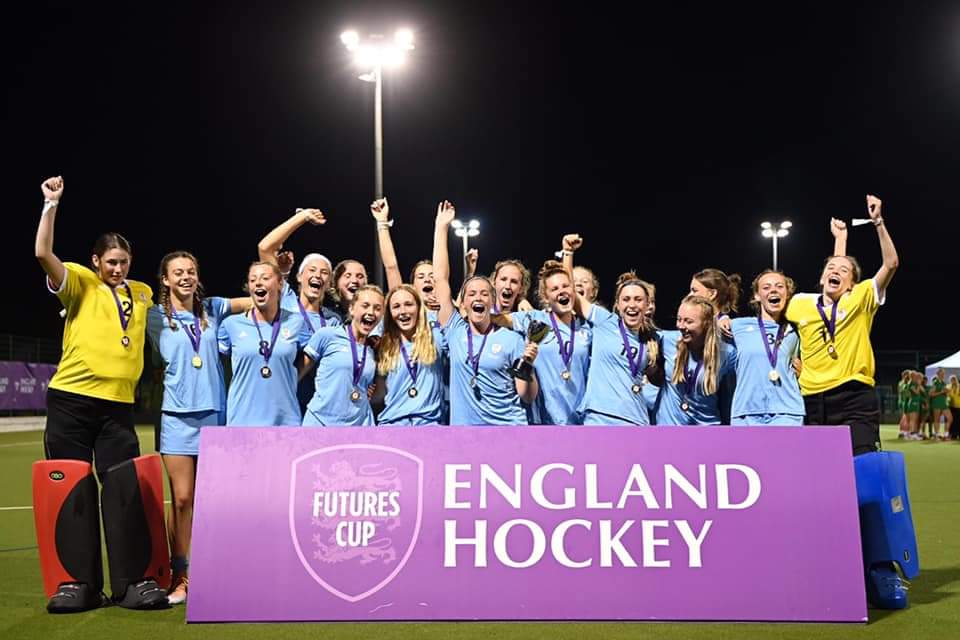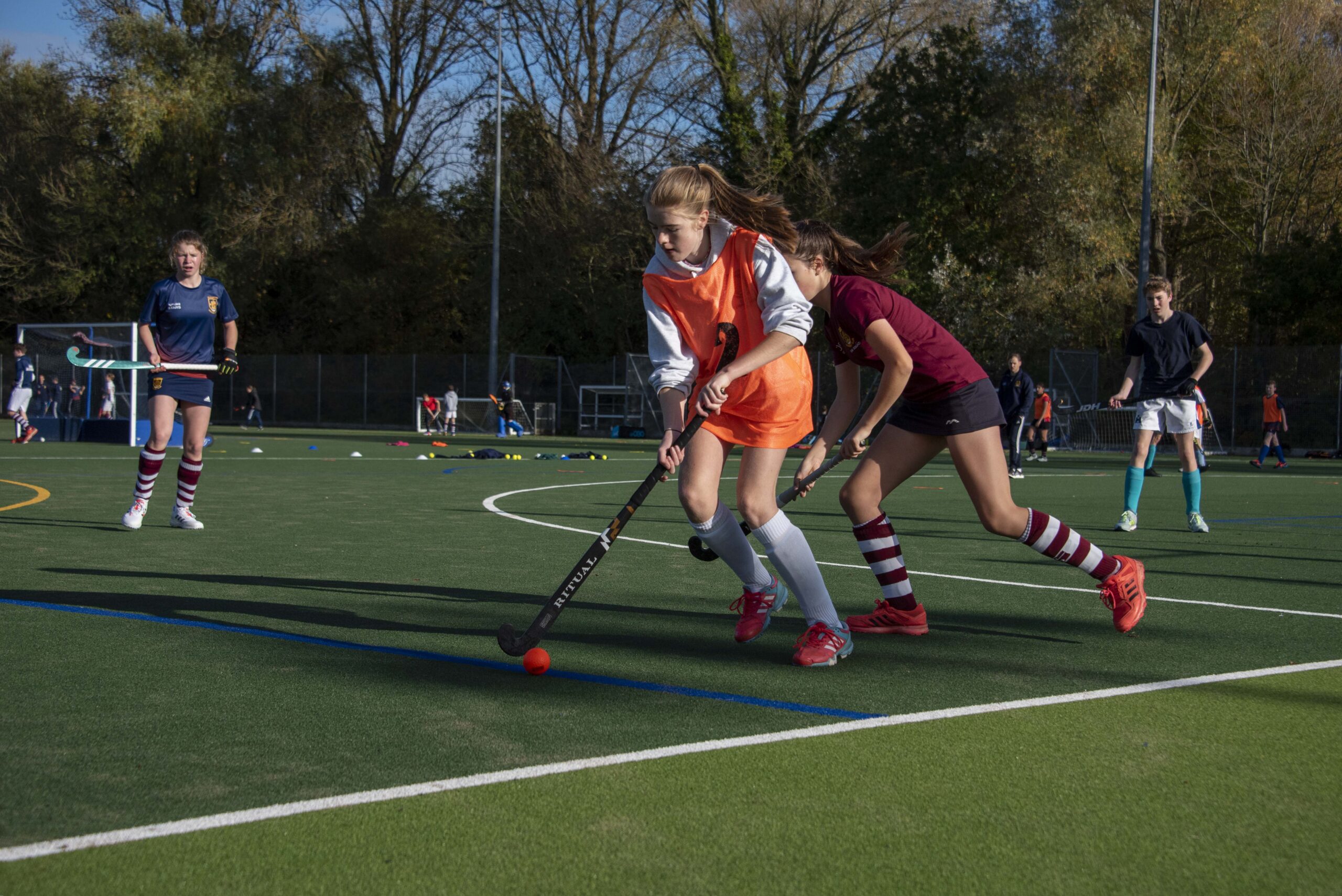In the third part of our series in collaboration with England Hockey on the new Talent Centre, we look at the first cohort of clubs working towards Talent Centre Accreditation as part of the new Talent System
Gary Johnson is talent foundations manager at England Hockey and has been supporting these clubs and explains what Talent Centre Accreditation is and how it aims to improve the opportunities for young hockey players, before Lee Newsham from Kingston upon Hull HC and Gareth Jones from Trojans HC share their views from a club’s perspective.
Gary:
Talent Centre Accreditation is all about developing and recognising what a club can provide for junior players who are showing potential and aspiration to progress their hockey. It isn’t about a defined squad or players.
It is critical that all junior environments provide safe, enjoyable, and inspirational environments for our young hockey players. The work clubs do to ensure this is the bedrock for initiating a lifelong love of the game and providing strong development opportunities.
A Talent Centre will provide all these things which is why ClubMark is a prerequisite. But it will also offer a safe challenge and support for talented players and pro-actively prioritise its junior system to optimise the opportunities for further development.
This distinction is important in understanding what is right for a particular club. If a club’s aim is to run a safe, enjoyable and rewarding place for young people to enjoy hockey, then ClubMark is absolutely the foundation of this. However, if a club wishes to be a Talent Centre, then it is its responsibility to provide a talent environment that also stretches and develops young players to fulfil both their potential and their hockey aspirations.
The Talent Centre Framework covers a wide range of topics to help assess the infrastructure, people and ways of working a club has in place to support junior players.
Part of the accreditation process is to provide evidence against each of the seven elements in the Framework (more in a previous column).
I’m sure there have been times when people have thought I am being a bit pedantic or too demanding as one of my roles is to evaluate and feedback on the evidence and make sure the accreditation process raises the bar for early talent development provision across the country.
For me it is not what’s written in a document that really matters, but how what’s written is brought to life in the club. Like many things it isn’t until you deep dive into something that you really get to the bottom of what is happening versus what you think is happening or hope is happening, so I ask lots of questions and encourage clubs to really think about the practical application of policies and procedures.
I’ve heard a lot ‘but we’re already doing all this!’, and when we’ve dug into the detail the club has discovered that it isn’t quite doing it all already! Especially around things like the transition for players from junior to adult environments, some areas of safeguarding, consistency of player feedback, and the impact on player workload.
We recognise it is a big commitment for a club and a lot of work, however that’s not a reason to lower the expectations. If we can all keep sight of the big picture of why we are doing this – to provide more and better opportunities for young people to have positive experience and realise their hockey potential – then the hard work is worth it.
This does need both flexibility and support so when England Hockey initially set up the accreditation, it was important to us that we established a system that allowed clubs to go at their own pace, and where they felt fully supported through this process.
We started off in September last year with an induction where we brought everyone together to explain our expectations and the support available. At that time, we thought it was best to condense the process into a 6-month window so clubs would be ready to be accredited by the end of March. But we soon realised that we needed a more flexible approach and multiple windows for clubs to complete their accreditation.
Each club has been assigned a mentor from the Talent or Coach Development team here at England Hockey, who are available for support throughout the process, and could deliver around two days worth of direct support.
The programme includes four core online modules with each one covering topics as varied as how to identify and nurture talented players, how to establish and maintain an excellent culture to develop and support talent, how to support juniors transition to adult hockey as well as a dedicated module on hockey.
From day one, I’ve been keen that we don’t just operate in ‘transmit’ mode. I’ve wanted the clubs to work and learn from each other, and much like we all do as coaches, have aimed to have them take time to reflect on what each module means to their club, and opportunities for follow up with their mentor.
Outside of this, we’ve run drop-in centres where any club representative involved with the process can chat to us, and we’ve been able to talk through problems, and sometimes help people within the same club connect better. Often clubs are encountering the same problems, so it’s particularly exciting when they can teach each other ways to solve them!
I’m also asked a lot if this is a ‘one off’ accreditation, but a big part of the accreditation process is helping clubs to consistently show a commitment to providing a great talent development environment. I want clubs to keep this up and see attaining TC status as the start of their continuous development, not the end point.

We aimed to have two club visits – sadly Covid was still getting in the way last year, so it has not been possible to get to each club twice in the short window we had as the season came to an end. The key thing is that we’re touching base regularly, and that this will continue in the future. At this stage, I’m confident we’re well-resourced to support TC accredited clubs as well as the next cohort, and we have plans in place to grow this support if needed in the future.
Finally, each club has access to a talent resource library, where we share tonnes of information, from coaching to culture, to help clubs to create their own resources and information, and to help develop their wider understanding of talent.
Gareth: This hasn’t been ‘sunshine and roses’! There’s clearly huge benefits, and it’s forced us to ‘professionalise’ our setup here at Trojans HC. The scale of the programme is massive – think of this as the level of work required for Clubmark multiplied several times – so it has been quite challenging managing all of that whilst also running a hockey season.
Lee: I’d agree – this has been hard work! None of us here wanted to do it half-heartedly, but we’re a volunteer club, so the reality is we rely on a few key volunteers to drive this programme. Having said that, the structure this has helped us to produce really will help take us to the next level – some of it we did feel we were doing anyway – but this process has really helped us to demonstrate that, hopefully to those outside of the club as well, and we now have a clear and documented roadmap for our junior development programme going forward.
Gareth: It’s the same here – until now we had quite ‘ad hoc’ structures, for example coach development or local outreach programmes, which relied too much on passionate volunteers, this system has forced us to do these seriously, and consistently. In the long term, you know that’s going to make a difference.
Meeting with the other clubs has been useful as well as we’ve been able to understand where they are in their talent development process. We’ve also got together outside of this accreditation process to share best practice and ideas. Some of the opportunities provided by England Hockey were great as well, such as having Lisa Letchford (England Under 18 Head Coach) share her thoughts and ideas for development and talk about the direction hockey is going as a sport.
Lee:The biggest thing this is changing for us is our approach as ‘one club’. It has made us consider the overlap between our men’s, women’s and junior sections, how we make things more consistent and transparent for our members and help crossover between each section. It’s important not only for parents and children, but for adult players to understand what we’re trying to achieve as the whole club will need to be on board to maximise the full potential of the Talent Centre Accreditation.
Gareth: Our changes have more come structurally, we’ve now a fully functioning junior committee with ten volunteers, which I think makes us much less at risk of losing a key volunteer. It’s also going to mean we’ll broaden and develop the coaching quality at all levels.
Fundamentally this provides a framework to deliver consistency, and that’s a place to grow from, which hopefully in turn produces more, and better, hockey players.
Lee: We’ve always faced a challenge in the North that we can feel influence is weighted towards other regions, so it’s exciting to see this accreditation coming and we hope to address that balance. Of course, it’ll take time to bed things in, but that is the next challenge and the next step in the journey. We can’t wait for the new season to begin to get started!
My main advice to clubs looking to apply? I’d recommend you understand fully who’s going to help with the process, and don’t underestimate how many documents there are to pull together. The most sustainable way of getting this done will be getting a small but dedicated group together – and if anyone wants to get in touch for help and advice let me know!
Gareth: Exactly that – if you haven’t got a fully functioning committee, or team to run with this, it’s a solid 12 months of work, something that’ll take a long time to set up. If you can get this end structure right early on, it becomes much more straightforward.
Do you have a viewpoint on England Hockey’s new talent framework? Email us





Of course you know what’s actually going to happen: talent centre clubs will just pick their own juniors to take part and it will quickly become obvious that to progress through the system kids will have to switch from their existing non talent centre clubs or face being ignored or deliberately overlooked.